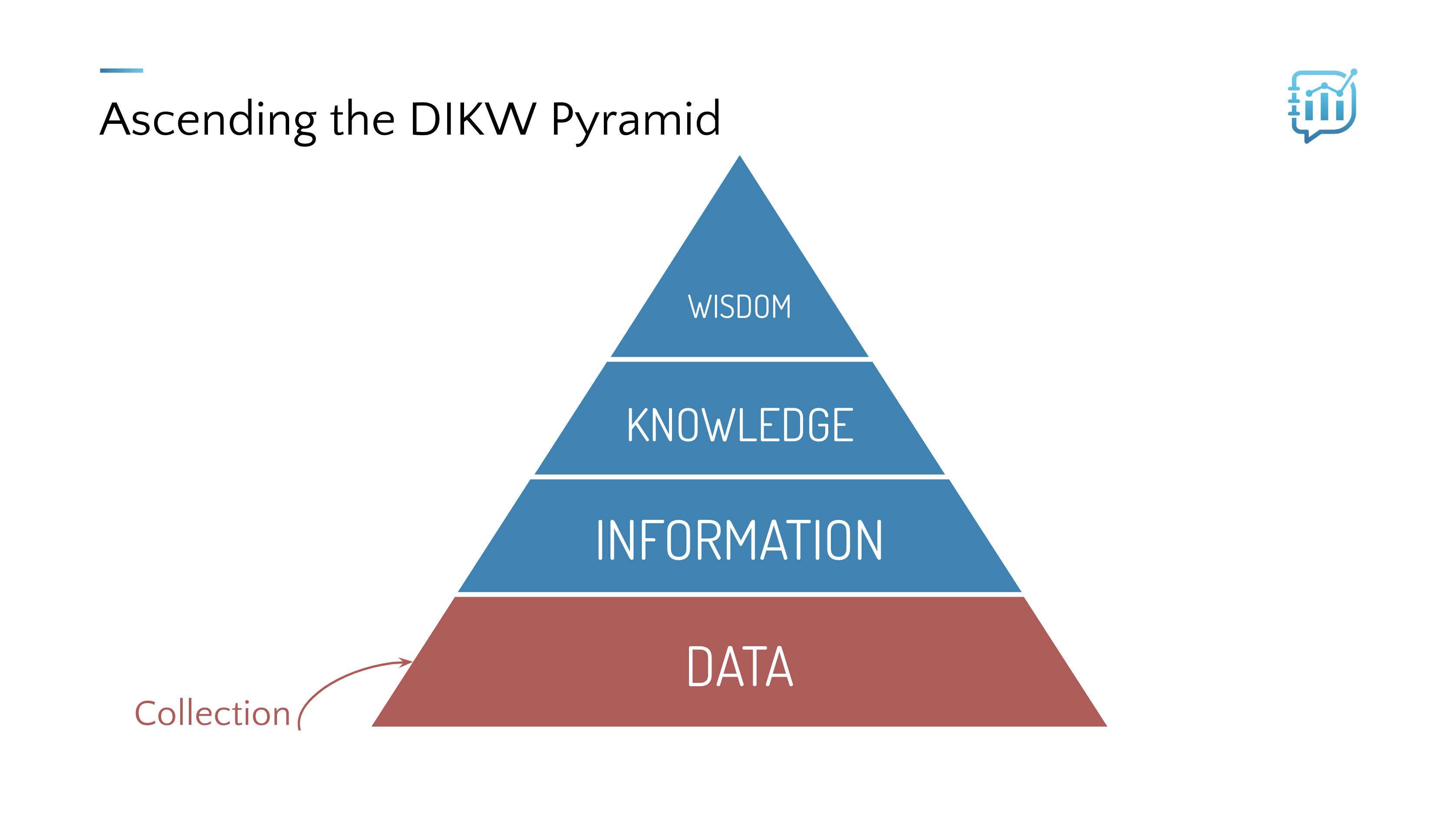1.2 The Data Level of the DIKW Pyramid
Topic Summary
In this topic, we define what “data” means, and we discuss how it forms the foundation of the DIKW Pyramid. We explore two passages from well-known texts to stress the importance of the quality of our data, which we compare to 1) the crime scene observations of a detective (Sherlock Holmes), and 2) the foundation of a house facing a fierce storm (a parable from the New Testament).
Key Points to Remember
- Data often takes a digital form (databases, spreadsheets, and files), but it can also live in the tangible, physical world (lists, ticks on a doorframe marking height of a growing child)
- Data forms the base of the DIKW Pyramid because it forms a foundation of our understanding. The quality of our data foundation is of great importance
- Just as a foundation without a structure isn’t very useful, data by itself can’t help us unless we do build on it
Definitions
- data – noun: factual information (such as measurements or statistics) used as a basis for reasoning, discussion, or calculation (source: Merriam Webster’s)
Diagrams

The Data Level of the DIKW Pyramid
Exercises
Exercise 1.2. Write down a list of three different sources of data that you have interacted with in the past week. They can come from any area of your life – professional, public, or personal.
Quotes
“Data! Data! Data!” he cried impatiently. “I can’t make bricks without clay.”
Sherlock Holmes in Sir Arthur Conan Doyle’s ‘The Adventure of the Copper Beeches’
Further reading
- The Parable of the Wise and Foolish Builders, Matthew 7:24-27 (NIV)
- The Adventure of the Copper Beeches, Wikipedia